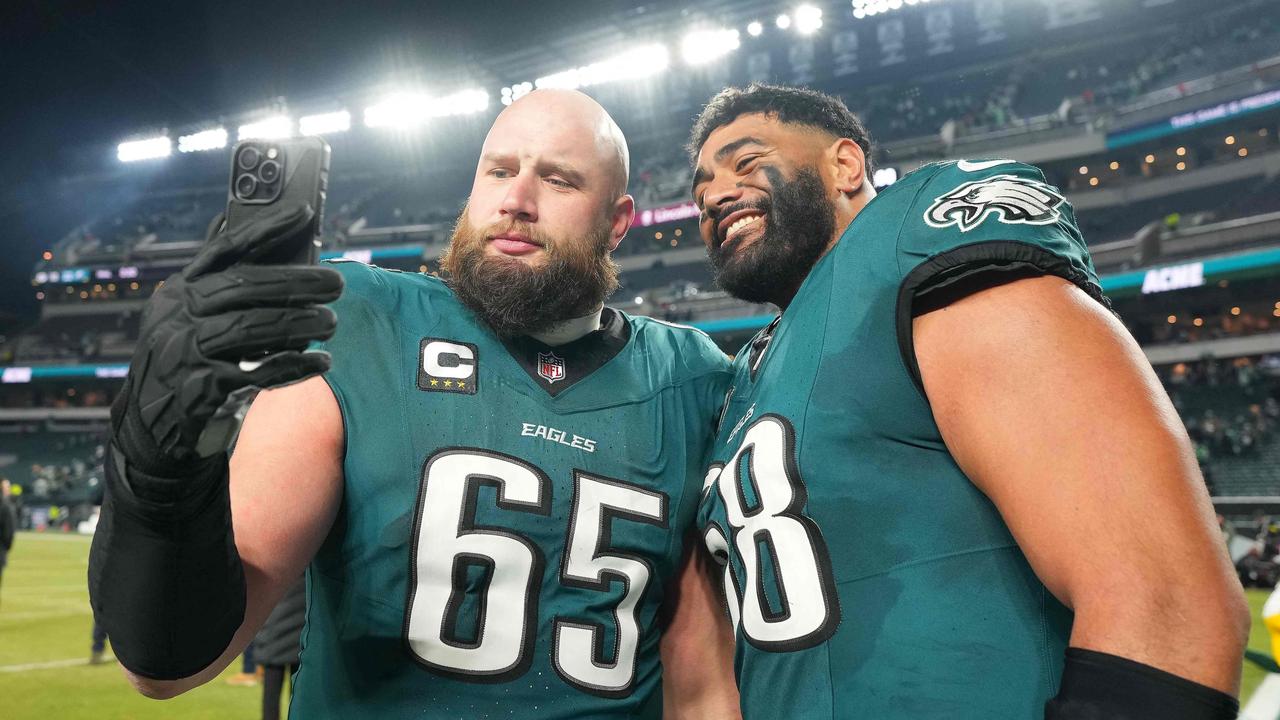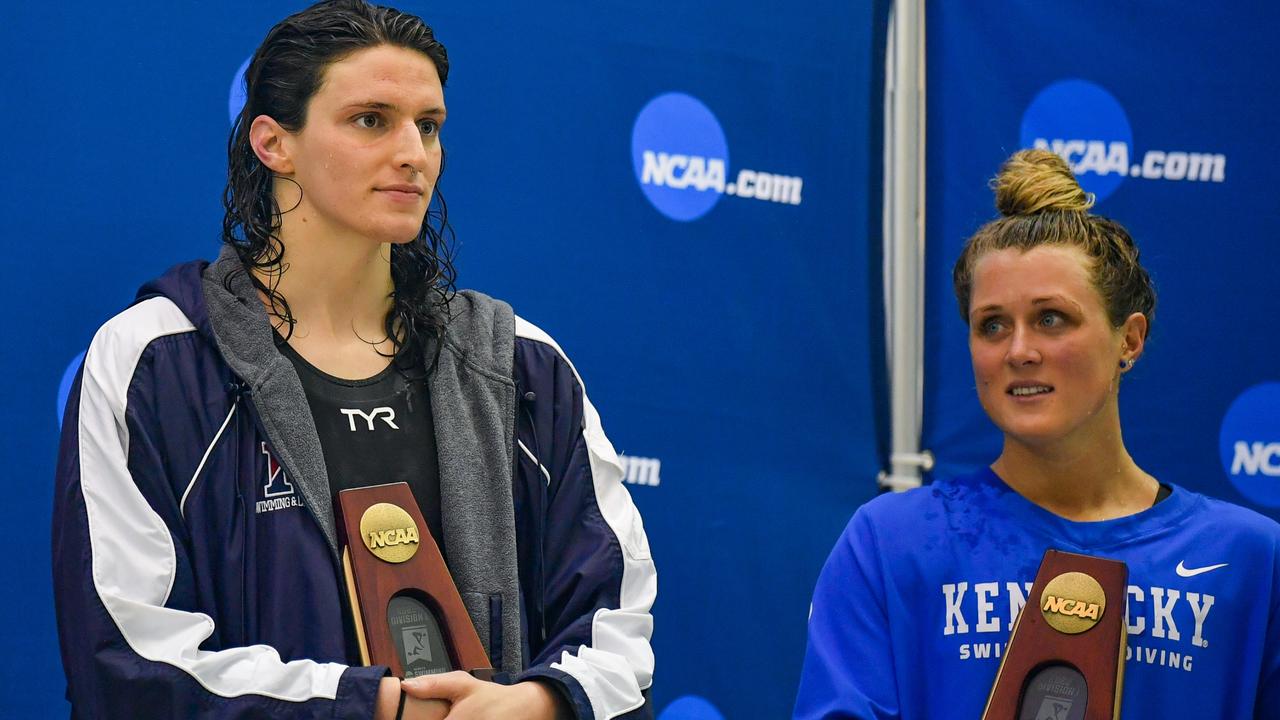Landmark blueprint for gender pay equality in sport endorsed by Billie Jean King and sport CEOs
Australia’s major sporting codes have backed a report into gender pay equality — which includes a radical overhaul of income — in an effort to close the pay gap in sport.
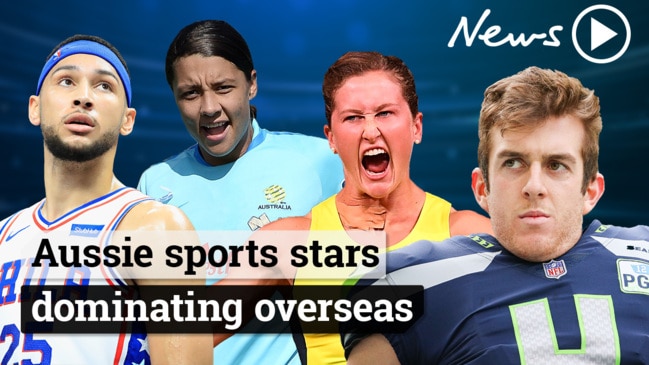
Sport
Don't miss out on the headlines from Sport. Followed categories will be added to My News.
Exclusive: Australia’s major sporting codes have backed a report into gender pay equality which includes a radical overhaul for athletes’ income that could see them remunerated per each hour and “unit” of their work — such as training, media appearances and community engagement — in an effort to close the gap in sport.
News Corp Australia can today reveal the Male Champions of Change Pathway to Pay Equality report which has secured commitment from the CEOs of NRL, AFL, Football Federation Australia and more to achieving equal pay for male and female athletes.
The historic blueprint for change details some of the inequities faced by women today — including lower pay, poorer facilities and benefits including flying economy while male athletes fly business — as well as outlining the steps to equal pay.
The report says the equal pay fight must be a whole of ecosystem approach incorporating codes, sponsors and government.
In addition to a pay overhaul, the report recommends full disclosure of all salaries in sport, flexible working arrangements adopted by Australian businesses for employees trying to pursue a professional sporting career and making government funding conditional upon pay equality.
RELATED: Girls participation in sport sliding
RELATED: Childhood obesity costing taxpayers millions
RELATED: Sport gets huge cash in federal budget
Closing the gender pay gap in corporate and administrative roles in sport should also be a focus.
Codes will self-assess against 15 measures each year to track their progress with 16 CEOs of codes and clubs committing to the pathway recommendations including NRL CEO Todd Greenberg, Football Federation Australia CEO David Gallop, Rugby Australia CEO Raelene Castle and the chiefs of Collingwood, Geelong, St Kilda, Richmond, and Carlton AFL clubs.
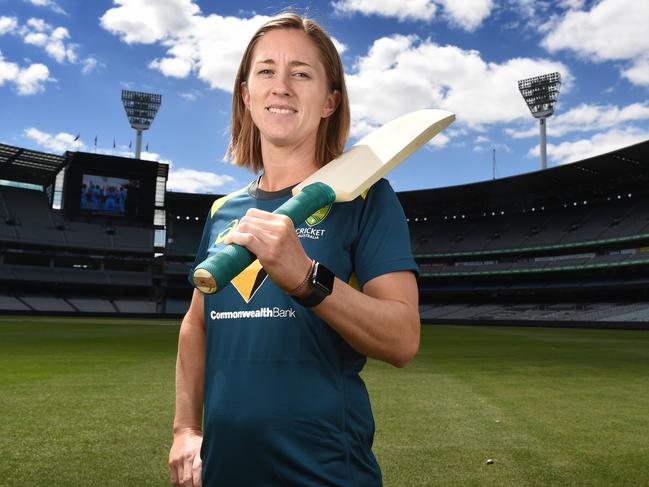
The report has been endorsed by legendary tennis player Billie Jean King who said the rest of the world needed to follow Australia’s lead.
“The idea of activating the entire sports ecosystem to hasten change is an approach that could be considered and replicated throughout the world,” Ms King said.
Experts say this is the first real yardstick for measuring progress on pay equity in sport and want to see the majority of codes close the gap within five years.
However some have questioned the commitment of all codes and CEOs involved, particularly the NRL, which has been plagued by scandals involving a lack of respect and valuing of women.
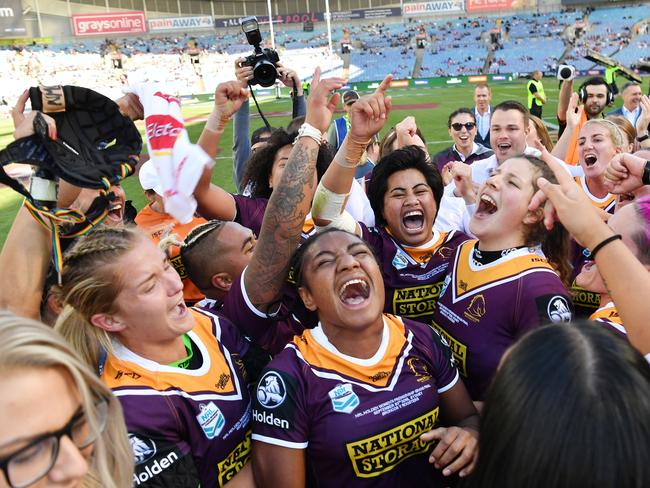
Male Champions of Change convener and UN special rapporteur, Liz Broderick, said the report represented a “line in the sand” for codes to be measured up against.
“It is unacceptable in 2019 that men and women playing the same sport don’t get the same base pay and conditions,” Ms Broderick said.
She said if pay equality was achieved in sport it would send a strong message to all other areas of society.
“And I would say to those who are sceptical — watch and see — see what the progress is and judge these sports over what happens over the next five years.”
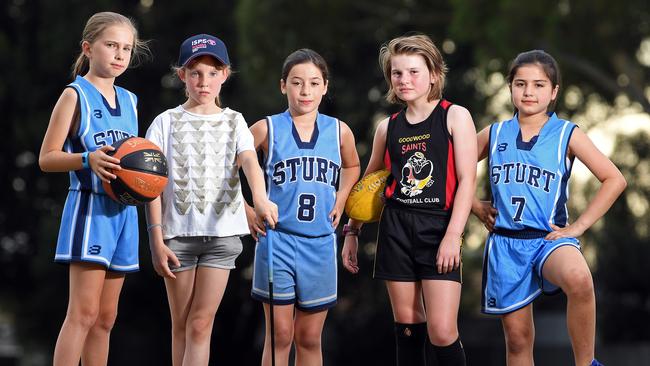
Sex Discrimination Commissioner Kate Jenkins said her interactions with all those involved in the report was that there was genuine commitment for change.
“Those CEOs that have signed this document are putting their names on the line. They are being transparent and we should continue to demand to see change.”
Sports Minister Bridget McKenzie welcomed the report and said women would receive equal pay in sport.
“But it is not going to happen overnight or next week,” Senator McKenzie said.
She did not commit to the report’s recommendation of making pay equity a condition of government funding.
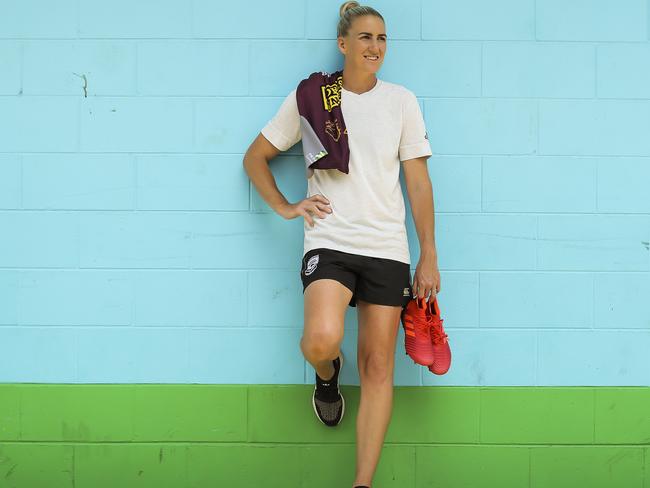
“What we need to be funding is the barriers that prevent women and girls getting into sport in the first place,” she said.
Chief Executive of Tennis Australia Craig Tiley said he was “often perplexed by the slow rate of change in pay equity” in other sports.
The Australian Open introduced equal prize money for women and men in 1984 and for all Australian tournaments since 2005.
“The target on this for all codes should be tomorrow, it should be today,” Mr Tiley said.
“This is a watershed moment for sport.”
RACHAEL HAYNES
Rachael Haynes, 32, has lived through the best and worst of women’s sport.
The Australian cricketer — predominantly a batter — said cricket has made leaps and bounds in recent years and she’s now in a position where she no longer has to work a second job to support her professional career.
“It was a slow burn to get here but now we’re leading the way,” Ms Haynes said.
“I think that particularly larger sports in Australia have got a responsibility to value their male and female athletes the same.”
Ms Haynes said sport was integral to the fabric of Australian society but that for a long time it had been seen through a male lens. She lived through periods where male athletes were flown business class while the women’s teams had to fly economy.
“The main thing that will see change is if the national sporting organisations have the will and desire to make it happen in the same way cricket did. I implore other national sporting organisations to ask why aren’t they doing more because for cricket it has been such a positive experience,” Ms Haynes said.
“I’m very grateful that I got to play through that transition and I’m so privileged and grateful that I get to inspire the next generation of girls in our country wanting to play sport.”
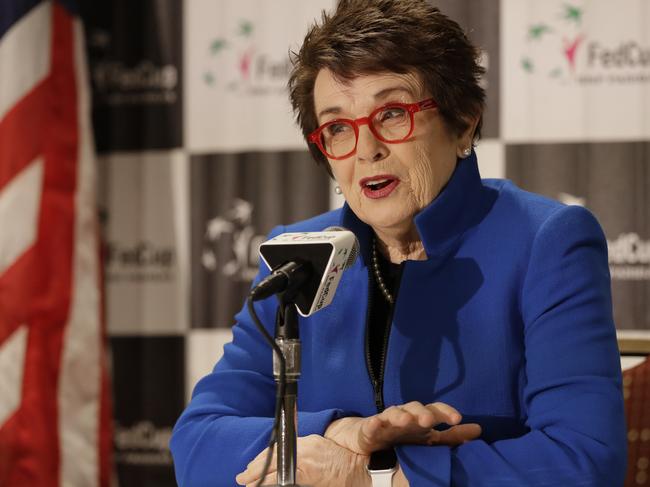
KEVIN ROBERTS
Chief executive of Cricket Australia Kevin Roberts has a very important reason to want pay equality for women in sport.
In fact, he has five of them.
And while Mr Roberts is adamant his five daughters — Emma, 16, Kate, 14, Sophie, 12, and twins Mia and Jess, 8 — are under no pressure to play professional cricket or sport, he wants them to live in a world where if they wanted to they could receive equal pay.
“How can I look them in the eye and suggest to them that the opportunities they have in life are the same as what boys their age have if there is not pay equity in sport?” Mr Roberts said.
Mr Roberts said he was proud to be heading up a sport where female athletes were treated equal to men.
In 2017, Cricket Australia led a groundbreaking approach to pay equity including gender-neutral contracts, policies and conditions.
“I think a core part of the Australian spirit is the notion of a fair go and if we apply that to gender and sport — if anyone is really serious about embracing the notion of a fair go they would be ready for pay equality in sport,” Mr Roberts said.
“Cricket is really proud of being a leader in this space.”
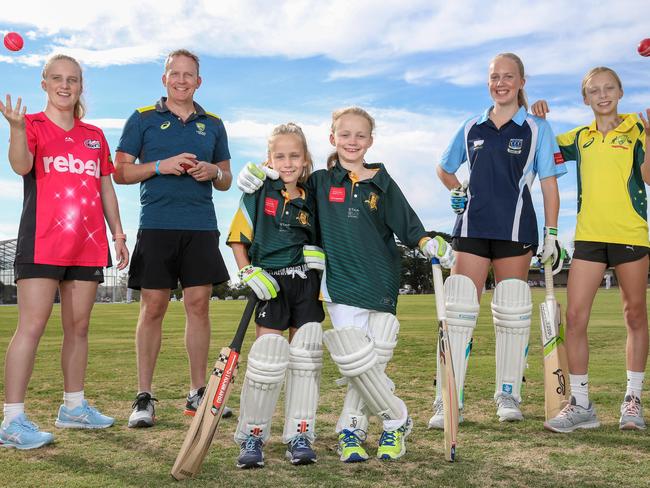
SHARNI WILLIAMS
Rugby Sevens player Sharni Williams still has to work a second job to supplement her professional athlete salary.
The 30-year-old works at an F45 gym as a trainer to help pay for the school fees of her two stepchildren.
She’s proud of Rugby Union for introducing the same base salary for male and female athletes but with sponsorships and other factors, she doesn’t get paid as much as a male in her same position — despite captaining the gold-medal-winning 2016 Rio Olympics team.
“Just in 2014 when I moved down from Brisbane to Canberra to play I was only on $10,000,” Ms Williams said.
“In 2009 when we played in Dubai, the players had to be billeted out because accommodation was not covered.”
Ms Williams said she was extremely grateful to be able to play a sport she loved at an elite level, but that more work in her sport and others was needed.
“I am so thankful and grateful for the opportunities I have been given and the way it is progressing but this whole issue still needs a lot more work and to progress at a more rapid rate,” she said.
“It comes down to being able to fill a stadium and getting the audience involved in what doing, getting bums in seats.
“We are household names in France and New Zealand but it is now about capturing Australia’s interest too.”
KEY RECOMMENDATIONS
* An overhaul of salaries to instead be paid per “unit” of work encompassing training, media appearances and community engagement
* Government funding to be conditional upon pay equity
* Broadcasters to do more to build the profile of women’s sports including athletes, coaches and commentators
* Sports codes and clubs to do more to build strong pathways for women to progress to high-performance levels
* Corporate sponsors to equally invest in women and men’s sport
* Employers to provide and support flexible work arrangements for elite athletes transitioning from amateur to professional
* Ensure female athletes have access to the same conditions as their male counterparts, including no unjustifiable differences in class of travel, accommodation, support for development resources or allowances
*Investing in equal infrastructure and resources for men and women
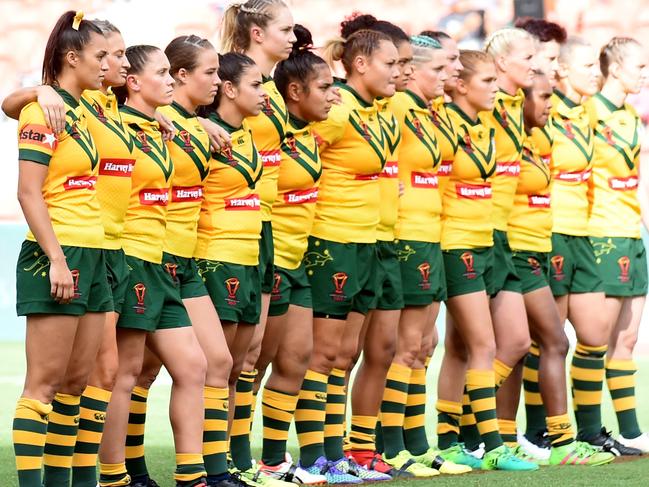
KEY QUOTES
NRL CEO TODD GREENBERG
“Personally, I am enthusiastic and excited about the future of women’s sport in this country and abroad — and particularly women’s rugby league It’s important that our game, alongside communities, media organisations, sporting codes and businesses, continues to promote and progress women’s sport, both financially and publicly, as we strive for equality across the board.”
FOOTBALL FEDERATION AUSTRALIA CEO DAVID GALLOP
“I strongly support the Pathway to Pay Equality report. The Matildas continue to inspire the nation with their success on the world stage but we know more needs to be achieved to support our players as well as the many women and girls involved in football. As we continue to strive for equality in football, I look forward to leading change and working closely with the Male Champions of Change and the wider sporting community in closing the gap for our female players.”
AFL GENERAL MANAGER SOCIAL POLICY AND INCLUSION TANYA HOSCH
“There are some challenges that are unique to footy, particularly given AFLW is effectively a year three start-up. We are building participation, talent pathways and infrastructure from the ground up to support a fully-fledged women’s professional league. It took a long time for men’s game to go from amateur to fully professional. We want to speed up that process for AFLW and we don’t take our responsibility lightly. Meanwhile we will continue to address these issues across the game of AFL.”
SPORT AUSTRALIA CEO KATE PALMER
“This is the first time we’ve seen something of a framework or system that will actually create change. We’ll look back at this time and say this was the moment everyone drew a line in sand and said this is what we stand for … it makes good business sense for these codes to get on board with this.”
CRICKET AUSTRALIA CEO KEVIN ROBERTS
“I think a core part of the Australian spirit is the notion of a fair go and if we apply that to gender and sport — if anyone is really serious about embracing the notion of a fair go they would be ready for pay equality in sport. I think contemporary Australians are definitely up for this.”
Originally published as Landmark blueprint for gender pay equality in sport endorsed by Billie Jean King and sport CEOs

